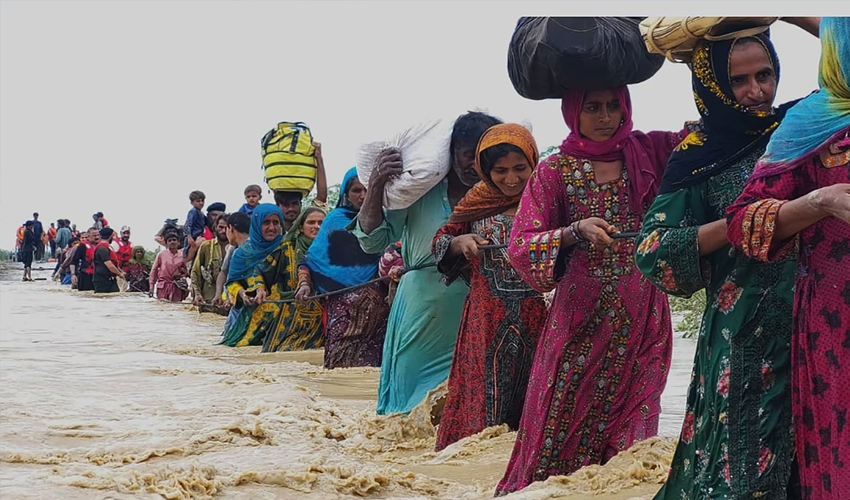The forthcoming 2024 general elections in Pakistan are greatly affected by the ongoing challenges confronting women in Sindh, particularly those impacted by the devastating floods of 2022.
This natural disaster has left countless rural households devastated, severing crucial connections and significantly disrupting the electoral process for many.
A stark reality emerges as numerous women in flood-affected areas grapple with the hurdles of acquiring essential identification documents necessary for voter registration. The absence of such documents has rendered a sizable populace within these communities practically invisible in the electoral landscape, grappling with an identity crisis amidst their daily struggles.
Take the case of Amiran Bibi, a 45-year-old resident in the Sobho Dero area of Khairpur district in Sindh. Devastated by the floods, Amiran and her family barely escaped with a few possessions, including the loss of her vital identity card. Despite having exercised her voting rights in previous elections, she remains unable to procure a replacement card due to the distant location of the NADRA office from her residence, thus losing her chance to vote in the upcoming election.
The statistics paint a grim picture. The Election Commission data reveals a significant rise in the number of women voters in Pakistan, with the count reaching 58,472,014 in 2023 from 46,730,570 in 2018. Sindh province, hit hardest by the floods, accounts for 12,208,439 of these women voters. Districts such as Dadu, Jacobabad, Qamber Shahdadkot, Khairpur Mirs, Mirpurkhas, Jamshoro, Sanghar, Umerkot, Badin, Shaheed Benazirabad, and Naushahro Feroze bear the brunt of the calamity.
Notably, the disproportionately affected districts are reeling with staggering numbers of women voters: Dadu with 426,165, Jacobabad with 272,773, Qambar Shahdadkot with 368,042, Khairpur Mirs with 640,827, Mirpurkhas with 398,735, Jamshoro with 216,630, Sanghar with 549,172, Umerkot with 276,523, Badin with 432,665, Shaheed Benazirabad with 421,398, and Naushahro Feroze with 430,484 women voters respectively.
Renowned social worker Marvi Awan, a staunch advocate for women's rights, underscores the critical need for inclusive electoral participation, emphasizing that the floods have marginalized countless citizens, denying them access to crucial identification documents necessary for democratic engagement. Awan calls upon the government to establish facilities in affected areas for document recovery and to enable disenfranchised citizens to exercise their voting rights.
Awan further highlights the societal barriers hindering women's autonomy in rural areas, impacting their ability to vote independently. She emphasizes that women's participation in decision-making processes is crucial for better policies and laws that address their unique challenges.
Responding to these challenges, Election Commission sources have indicated concerted efforts in collaboration with the provincial government to assist flood-affected voters. Initiatives include ID card drives and the restoration of polling stations in these regions, acknowledging that voting without proper identification remains a significant hurdle.
While the Election Commission of Pakistan progresses with finalizing election preparations, a substantial number of women in flood-affected areas continue to grapple with the absence of essential identification, echoing the urgency for concerted actions to ensure the inclusivity and integrity of the electoral process.



























